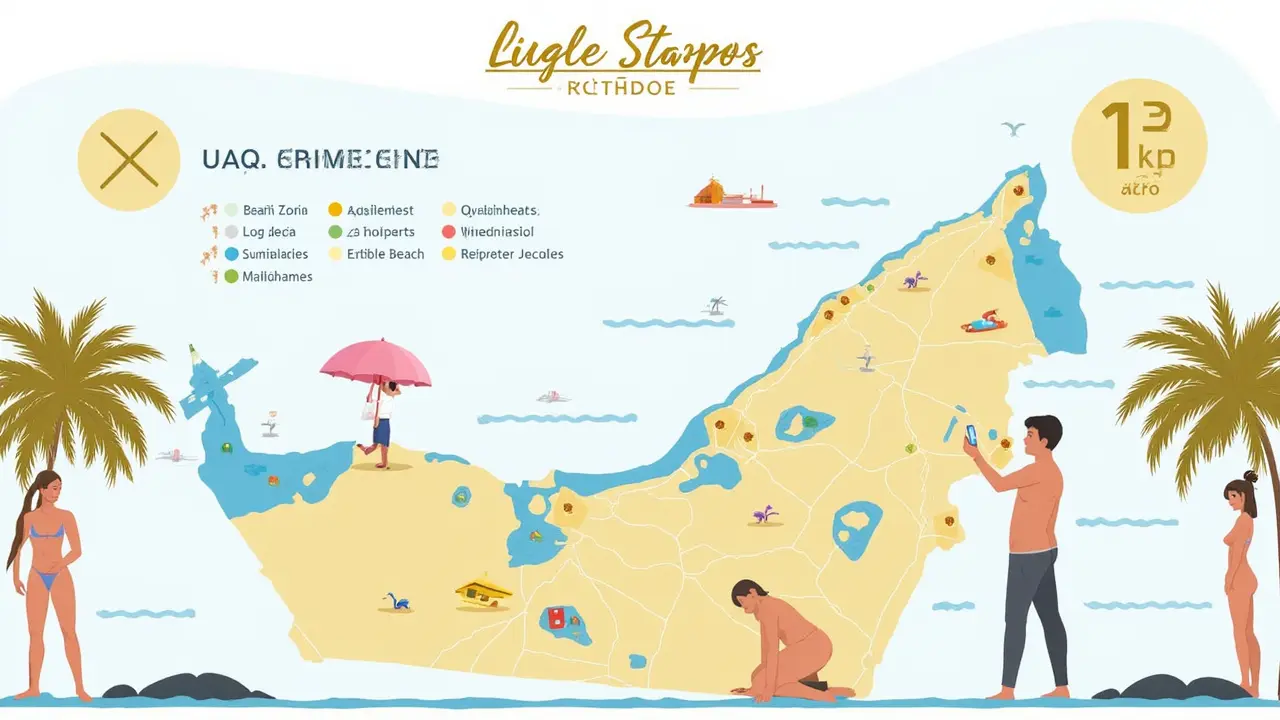Ever felt unsure about wearing a thong bathing suit at the beach? You’re definitely not alone—this question pops up all the time, especially with the rise of tiny bikinis on social media and runways. Here’s the quick answer: the legality of thong bathing suits really depends on where you are. In some places, you can strut your stuff with total confidence. In others, even a cheeky suit can land you a fine or get you kicked off the sand.
If you want to avoid surprises, it pays to know a few rules before you rock your suit. Every state or city can set its own guidelines. That means what flies on South Beach in Miami could get you a ticket in some parts of California. Want to keep things simple? Always check local laws ahead of time. And if you see lots of other people flaunting their thongs, you’re probably in the clear. But if everyone is wearing full coverage? Maybe play it safe or have a cover-up handy.
- Quick Legal Answer
- Top Takeaways on Thong Laws
- Thong Bathing Suits: Trends and Taboos
- Where to Wear Thongs: Beach and Pool Rules
- Practical Tips and Common Questions
Quick Legal Answer
If you’re just looking for a straight-up answer: Thong bathing suits are legal in some places, but swimsuit laws can change a lot from city to city and even beach to beach. There isn’t one nationwide rule in the US. Every state or local authority gets to make its own call on what is considered "public decency."
For example, in Florida, thongs are allowed on many famous beaches like Miami Beach or South Beach, where nobody will blink an eye. But head up to Daytona Beach, and you’ll find thongs banned on city sands. On the flip side, some California beaches let it slide, while other towns like Laguna Beach say no way. The same patchwork rules pop up in Texas, Hawaii, and other big bikini hubs.
- Check the official website or posted signs at each beach or pool before you show off a thong suit.
- Resorts with a party vibe are usually less strict, but family-style pools or government-backed parks might have tighter dress codes.
- Big penalties are rare, but you could get a warning, a ticket, or asked to leave if there’s a local rule you don’t know about.
If you want to see how random the rules can get, here’s a quick look at popular destinations:
| Location | Are Thong Suits Allowed? | Enforcement |
|---|---|---|
| Miami Beach, FL | Yes | Rarely enforced |
| Daytona Beach, FL | No | Warning or fine |
| Los Angeles County, CA | Some beaches allow | Check each city |
| Hawaii | Most state beaches allow | Moderate enforcement |
| New York City | Yes on most city beaches | Rarely enforced |
So basically, rock a thong if it feels right, but play it smart and double-check local info. City websites, lifeguards, or even hotel staff can usually confirm what’s cool and what’s not on nearby beaches. That way, you keep your day stress-free and avoid any awkward run-ins with beach patrol.
Top Takeaways on Thong Laws
If you’re itching to pull out that thong bikini, you need to know the local rules first. Here’s what matters most when it comes to thong bathing suit legality in the U.S. and beyond:
- Location is everything. State laws and city ordinances set the rules. Florida and California have some of the most thong-friendly beaches, but cities inside those states can have their own bans.
- City beaches vs. private pools. Most public beaches and pools have stricter rules than private resorts. Private or adults-only properties are usually more relaxed about cheeky swimwear.
- Europe vs. US. Swimwear laws tend to be more relaxed in Europe, where thongs are totally normal in places like Spain and France. In the U.S., laws can be hit or miss depending on the city.
- Enforcement is real. Cities like Myrtle Beach, SC, hand out $200+ fines for thong suits on public beaches. Miami Beach, on the other hand, lets you show as much cheek as you want.
- Parks and family areas are strictest. Most family-centric lakes, city pools, and water parks won’t allow thongs at all (some even post signs about it).
If you want actual data, check this out:
| Popular Spot | Thong Law | Fine/Consequence |
|---|---|---|
| Miami Beach, FL | Legal on public beaches | None |
| Myrtle Beach, SC | Illegal | Fine up to $200 |
| Venice Beach, CA | Legal (city beach) | None |
| Los Angeles Pools | Illegal (city-run pools) | Warning or removal |
| Cannes, France | Legal | None |
When in doubt, just google your beach or community before you go, or give the parks & rec office a quick call. Saves you from awkward moments with the beach patrol.

Thong Bathing Suits: Trends and Taboos
It feels like thong bathing suit legality is always up for debate. Back in the '80s and '90s, thongs started showing up on the beaches of Brazil and Miami, mostly thanks to swimsuit models and daring trendsetters. Fast forward to now, and you see thongs on Instagram, TikTok, TV shows, and at all kinds of resorts. If you look at the numbers, Google Trends shows searches for thong bikinis more than doubled from 2020 to 2024. Clearly, thongs are everywhere—even major brands like Victoria’s Secret and Frankies Bikinis feature them in their main collections.
But let’s get real: not every place rolls out the welcome mat for them. In the US, they’re totally fine in areas like Miami Beach, South Padre Island, and parts of Hawaii. Meanwhile, some counties in Florida and even parts of California hand out fines if you wear thongs in public spaces. So, you always want to glance at city rules or lifeguard posts before dropping that cover-up.
Social reactions can be mixed. A 2023 survey in Cosmopolitan magazine found that 41% of women 18-35 have worn thong swimwear at least once, but 55% of respondents said they’d only do so on a "beach known for being fashion-forward." This shows thongs are trendy but still get side-eye in more conservative spots.
| Location | Public Beach | Hotel Pool | Private Club |
|---|---|---|---|
| Miami Beach, FL | Allowed | Usually Allowed | Allowed |
| Los Angeles, CA | Restricted | Depends on Hotel | Allowed |
| Barcelona, Spain | Allowed | Allowed | Allowed |
| Myrtle Beach, SC | Not Allowed | Restricted | Depends |
If you’re thinking of making the jump, just watch what others are doing when you get there. And if you feel uncomfortable or get unwanted attention, it’s totally fine to bring a sarong or shorts just in case. Confidence is awesome, but it’s even better when you know the local vibe and don’t have to worry about being asked to leave.
Where to Wear Thongs: Beach and Pool Rules
Let’s break down the real deal: not every thong bathing suit legality question has the same answer everywhere. Rules change depending on location—even within the same state. For example, Miami’s South Beach in Florida is famous for letting you wear just about any style, and thongs are a regular sight. But just an hour’s drive north in places like Palm Beach, you might get fined for baring too much.
Here’s how it usually shakes out:
- Florida: Miami Beach is thong-friendly, especially in touristy areas. Some state parks and small towns, though, ban thongs—so double-check city or park websites.
- California: Venice Beach and some Los Angeles beaches are relaxed about thong bikinis, but counties like Orange and some family-oriented beaches ban them completely.
- Texas: Most Texas public beaches (including Galveston) don’t allow thong swimsuits. It's a mix of state and city rules, so always check.
- International: Brazil? Thongs everywhere. Spain and parts of France are also cool with them. But places like Dubai and some Asian countries have very strict dress codes poolside and beachside, and thongs could actually get you in real trouble.
Pools are usually more strict than beaches. Most public pools, hotel pools, or water parks in the U.S. will not allow thongs, and you could be asked to leave. Private pool parties? That’s usually up to the host.
If you’re traveling, look up your destination and read official beach rules online. When in doubt, spot what the locals are wearing. And if there’s a sign at the entrance that mentions swimwear policies, take a second to read it.
Bottom line: Always check ahead to avoid any hassle or embarrassment, especially if you’re shooting for bikini model vibes or just love the look. Staying in the know keeps things fun—and keeps you out of trouble.

Practical Tips and Common Questions
Ready to hit the sand in your favorite thong but feeling nervous about the rules? Don’t sweat it—here’s how to keep things chill and drama-free.
- Check local rules before you go. Not all beaches or pools have the same policies. Look up the local city or park website, or even call the beach office. South Beach in Miami? Thongs are pretty much the norm. At family beaches in Orange County, California? Not so much. Some places post clear swimsuit rules by the entrance, but a lot don't. Play it safe by checking ahead.
- Bring a cover-up. Even if thongs are fine on the main sand, you might run into stricter rules at snack bars, boardwalks, or hotel pools. A simple skirt or sarong solves that problem fast.
- Respond politely if approached. If a lifeguard or police officer lets you know your swimsuit isn’t allowed, don’t argue—it’s usually about local codes, not personal feelings. Just cover up or switch suits; it’s rarely worth a scene or a fine.
- Be mindful of who’s around. Spots popular with families or older crowds may be less welcoming to cheeky styles. If everyone else is in shorts or one-pieces, use your judgment or keep a backup suit in your bag.
Let’s get into some straight-up answers to the most common questions about thong bathing suits:
- Are thong bathing suits legal on all public beaches? No, not all. Famous spots like Miami, Rio de Janeiro, and French Riviera are mostly good, but plenty of U.S. beaches still ban them.
- What happens if I wear a thong where it’s not allowed? At worst, you could be fined (typical fines run $50-$150), or someone may simply ask you to cover up or leave. Actual arrests are extremely rare—cities just want to keep things family-friendly.
- Is social media making thongs more common? Yep, totally. Instagram and TikTok have made thong bikinis mainstream, especially with the rise of bikini models and influencers. Still, online trends don’t always match local rules.
- What about private pools and resorts? Most private resorts have their own dress code, which is often more relaxed. Read the rules or ask staff up front—places that cater to adults and models usually have no issue with any style.
- Can I tan in a thong in public parks or hotel lawns? Usually, outdoor sunbathing spots follow the same rules as their nearby pools or beaches. If you’re unsure, a quick cover-up is always your best friend.
One last tip: If you’re traveling with friends and want those iconic beach pics, just double check everyone’s on the same page about local thong rules. A little planning saves a lot of hassle—nobody wants their vacay ruined by a ticket.
